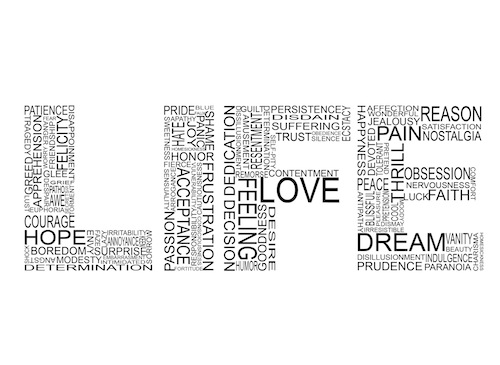Yesterday I wrote a post entitled, When Upset Turns Violent. I wrote it hoping for feedback from those who may have at one time, or currently have felt so overwhelmed they strike out and from parents who are on the receiving end of children who become violent. I wanted to get a better idea of the kinds of support that might be beneficial to all involved.
As the comments came in, both here and through email, I realized a few things. One was the shared feeling of shame so many felt. Tremendous shame was described by almost all the parents of kids who express themselves violently, as well as some who become so overwhelmed they become violent. Exacerbating, or perhaps a part of the shame, was the feeling that this should not be spoken of for fear of ridicule, blame and judgment. Many people remain silent, which serves to further feelings of isolation and disconnect from community.
Another thing I realized as I read, was how both parents and those who are in overwhelm are actually feeling similar feelings of powerlessness and wanting a safe place to go. I identified mightily with all the feelings described and thought it might be most helpful to reprint a number of the things people have written, both from the comments section on this blog, but also from some of the emails I received. (For those who asked that I not reveal what you wrote, don’t worry, I haven’t.) There are too many wonderful thoughts, comments, advice and experiences to publish here in a single post, but you can read, at least some of the comments in the comments section of yesterday’s post and a few that came in on Emma’s Hope Book Facebook page.
What follows is a sampling from some of the terrific comments received. There are many more and they are all insightful and wonderful. So please do read the related articles at the end of this as well as all the comments from those who so generously wrote in on this blog. Obviously, there is a huge need for more conversations like this…
A few quotes from parents –
“I just want a safe place where I can talk about this stuff. Not publicly. I don’t ever want to be “one of those moms” but I want to be able to talk about what’s going on with other parents who know what it’s like.”
” I know what it is to sit in an IEP meeting begging for help for my child with my eye swollen shut and bite marks and scratchs covering my arms.”
“I am scared of ____ and that makes me feel terrible. What kind of parent is scared of their own kid? A kid I love with all my heart. A kid I want to help…”
“It changes you when you live in a state of perpetual fear and not having any place to talk about that makes it harder.”
“I would love a support group, but not where everyone sits around blaming all their problems on autism and their kid.”
Comments from others:
Emily K. wrote: “Remove yourself from “their” space but do not leave. Defend yourself but do not leave. Let your child Leave/ escape and do not block his/her path. Follow but do not intrude. Allow space and time do not react but respond in the opposite, we need peaceful and loving parents.”
Autisticook wrote a number of really powerful and wonderful comments, this is but one of them: “I have given some thought to what I would have needed as a child to cope with my violence. I would like to start with a caveat: first of all, anyone who knows me in real life would be shocked at my description. The only people who believe I can be violent are the people I’ve actually hit. That’s about 4 or 5 people. The rest of the world calls me sweet natured and a good person and empathic and supportive of others. I’m also just over 5 feet tall and present as extremely non-threatening.
Second of all, my parents are still the most important two people in my life. A lot of people in the autism community weren’t so lucky with their parents and have a lot more to deal with as a result. I’ve been incredibly lucky to have such generous, loving people prepare me for the outside world. I have a lot of emotional stuff that’s coming out now that I know about autism, but I don’t blame them for any of it. So here goes: the things I needed as a child and didn’t get.
1. Don’t blame yourself. Don’t punish yourself for not being a perfect parent. I can tell when you feel bad and what I’m learning is that I need to be perfect as well. When I’m not, I feel as if I’m disappointing you and making you feel bad. I want you to be happy with me. But when I make you feel bad, I feel bad as well and that is making me even more stressed out because I’m still learning to deal with my emotions.
2. It will get better. I’m trying to learn how to walk. You can show me how it’s done but you can’t force me to walk. It might take me a bit longer to learn this, or I might do it a bit later than others. But it doesn’t mean I will never learn. I just need someone to show me and teach me and support me. This is as true for feeling upset as it is for walking. Teach me how to be upset. Show me there are other ways of being upset, instead of only telling me the way I have chosen is wrong and leaving it at that.
3. Help me recognise my triggers. I might come home from school cranky and tired and overwhelmed. My brother sticking his tongue out at me might simply be the last drop. If I am not saying much, if I’m curled up in the big chair kicking my legs out, or if I seem to be absorbed in an activity like playing with my toys and not paying attention, it might be because I’m trying to self-regulate and deal with all the stuff that’s coming at me. Help me recognise that this is what I am doing. Maybe you need to learn how to read my behaviour first, like hanging upside down in the chair (vestibular stims) and kicking my feet (propioceptive stims) and the attention on my toys (visual or tactile stims). You’re the adult, so I’m depending on you to explain to me what I’m doing and why. I won’t be able to correct you on your assumptions until I’m an adult myself. So please be careful in learning my behaviour and don’t label it until you’re absolutely sure. It’s also OK to ask my input on this when I’m calm and happy.
4. Allow me a way out. If my self-regulating isn’t allowed, I can guarantee you I will get a meltdown. And once I am in that space, all I can think of is making the thing stop that made me go into meltdown. I only have short term memory and very limited reasoning power when I go into meltdown, so I will latch onto whatever trigger I see in front of me. First it will be my brother who stuck his tongue out at me. And then it will be you for restraining me from hitting my brother. Or myself for being in the way. Triggers triggers triggers. I will keep triggering until the world is empty of triggers or until I am utterly exhausted. So if you hold me down, you’re actually keeping me in the world of triggers. I need a different world that is practically triggerless. But I’m too young to know this, which is why I will sometimes keep following you and hitting you even though you try to remove yourself. Because I want the upset feeling to stop and the only way I know how to stop something is to hit it until it stops moving.
5. Don’t ask me questions. If you want to know how I’m feeling, please ask me afterwards, when I have calmed down and can find my words again. Ask me too soon and it will just be another trigger. I am dealing with my overload, with my own feelings of anger and guilt and frustration and sadness and pain, and there’s so much going on that there’s no room for words. It’s hard enough for me to even understand, LITERALLY understand, what you are saying. Formulating an answer is simply not going to happen. However, if you talk about it with me afterwards, that might be a really big help for me in learning how to understand emotions and how my mind works. I may sound resistant to questioning, but that’s also because I’m afraid of going into another emotional meltdown.
6. Don’t try to distract me. I’m not having a temper tantrum, I’m having a meltdown. Trying to get me to focus my attention on something else means I get even more input that’s getting on top of the input overload and I just can’t deal with that. Fewer triggers, not more. You can try getting me to hit a pillow instead of you, but the pillow isn’t triggering me so I might not listen to that. What’s better once I get that violent is bringing me to a GUARANTEED safe space (I emphasise guaranteed because it needs to be not just a space of your choosing, but a space where I can feel safe no matter what and where I won’t be forced out again). My safe space was the back of my mother’s wardrobe, between her clothes, because even if I had the door to my room closed, people still barged in. Once I’m in my safe space and I know people will no longer ask me questions and I can block out the noises and lights and stim to my heart’s content without someone telling me it’s wrong, I usually calm down within an hour or two.
7. Yeah, it takes that long. Please give me time to process. I will come to you once I’m ready. Because I love and trust you, even if I don’t always show it in a way that you can recognise. Please don’t punish me for not understanding why things went wrong or for losing control. I’m punishing myself already. Trust me on that.
Anon wrote: “I used to hum to myself for comfort when I was sick (about 7yrs) and my father used to threaten me into silence – it was his ignorance and fear, not malice… but I stopped humming.”
Autisticook wrote: “It was NOT HAVING WORDS and SO MUCH FEELS and STOP TALKING I CAN’T MAKE SENSE OF THINGS and HELP ME NOTICE MY DESPAIR NOTICE MY NO WORDS HELP ME. And above all just stop stop stop stop stop.”
Ischemgeek wrote: “Especially big for me was stop yelling at me so I can think and figure out what you want because I don’t even know what you want and why you’re screaming at me I just know you’re screaming and I can’t take it just stop.”
And in another comment wrote: “For me, violence of the meltdown variety (as opposed to sibling bickering violence, which stopped around age 8) was never so much about getting my way and more about gettingaway, if that makes sense.”
MonkeyPliers wrote: “I’d be concerned about any child developing the kind of anger towards her- or himself that I learned to have towards myself from not being understood and being accused of “putting on a display” when I couldn’t regulate myself.”
Related articles













